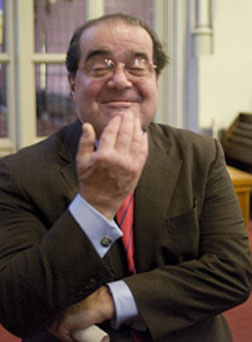That was Judge Altonaga responding to a question from a student at her former school. The Herald has the nice story about her return to the school here:
The first Cuban-American woman ever appointed to a U.S. federal court bench said studying at Notre Dame Academy in Miami taught her the meaning of tolerance. It was the end of 1970s, one of the most tumultuous periods of racial discontent in Miami’s history. Her all-girls high school was one of the most racially integrated in the city. “I remember in my last year, coming back from a graduation night,” said Cecilia María Altonaga, who graduated in 1980.
“Our parents had to pick us up from the school, and the riots were going on at the same time. The school was closed. It was dangerous.” There were no final exams that year, due to the violence. But inside the school, a different story about race was unfolding. “This was a place that exhibited all these different racial/ethnic groups coexisting, working together, overcoming differences,” said Altonaga. “There is this perception that all Catholic girls schools are elitist or homogenous or they exclude people. This was quite the opposite, one of the most diverse groups of young women working together.”
She returned to her alma mater — which soon after she graduated merged with Archbishop Curley High School — on Saturday to talk about her career in the law to about two dozen current students. The forum followed a special Mass at the Archbiship Curley-Notre Dame High School, which each year honors an alum who now serves the community as an attorney or judge.




